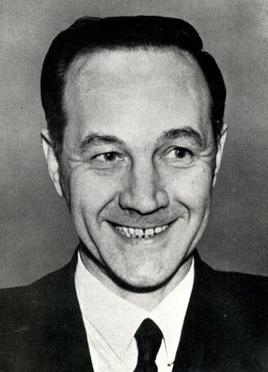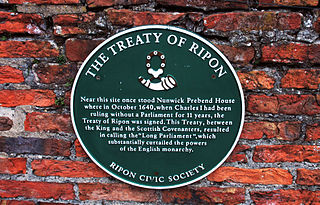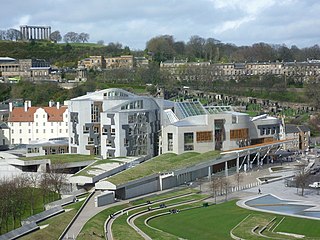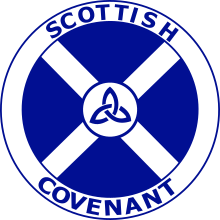
The Scottish Parliament is the devolved, unicameral legislature of Scotland. Located in the Holyrood area of the capital city, Edinburgh, it is frequently referred to by the metonym Holyrood. The Parliament is a democratically elected body comprising 129 members known as Members of the Scottish Parliament (MSPs), elected for five-year terms under the regionalised form of additional member system (MMP): 73 MSPs represent individual geographical constituencies elected by the plurality (first-past-the-post) system, while a further 56 are returned as list members from eight additional member regions. Each region elects seven party-list MSPs. Each region elects 15 to 17 MSPs in total. The most recent general election to the Parliament was held on 6 May 2021, with the Scottish National Party winning a plurality.

The West Lothian question, also known as the English question, is a political issue in the United Kingdom. It concerns the question of whether members of Parliament (MPs) from Northern Ireland, Scotland and Wales who sit in the House of Commons should be able to vote on matters that affect only England, while neither they nor MPs from England are able to vote on matters that have been devolved to the Northern Ireland Assembly, the Scottish Parliament and the Senedd. The term West Lothian question was coined by Enoch Powell MP in 1977 after Tam Dalyell, the Labour MP for the Scottish constituency of West Lothian, raised the matter repeatedly in House of Commons debates on devolution.

Scottish independence is the idea of Scotland regaining its independence and once again becoming a sovereign state, independent from the United Kingdom. The term Scottish independence refers to the political movement that is campaigning to bring it about.

John MacDonald MacCormick was a Scottish lawyer, Scottish nationalist politician and advocate of Home Rule in Scotland.

The Scottish Constitutional Convention (SCC) was an association of Scottish political parties, churches and other civic groups, that developed a framework for Scottish devolution. It is credited as having paved the way for the establishment of the Scottish Parliament in 1999.

The secretary of state for Scotland, also referred to as the Scottish secretary, is a secretary of state in the Government of the United Kingdom, with responsibility for the Scotland Office. The incumbent is a member of the Cabinet of the United Kingdom. The Secretary of State for Scotland is serves as the custodian of the Scottish devolution settlement as outlined in the Scotland Act 1998, and represent Scottish interests within the UK Government as well as advocate for UK Government policies in Scotland. The Secretary of State for Scotland is additionally responsible for partnership between the UK Government and the Scottish Government, as well as relations between the Parliament of the United Kingdom and the Scottish Parliament.

The Scottish Assembly was a proposed legislature for Scotland that would have devolved a set list of powers from the Parliament of the United Kingdom. The Labour Government led the Scotland Act 1978 through Westminster which provided for the establishment of the Scottish Assembly.

The Treaty of Ripon was a truce between Charles I, King of England, and the Covenanters, a Scottish political movement, which brought a cessation of hostilities to the Second Bishops' War.

Unionism in Scotland is a political movement which favours the continuation of the political union between Scotland and the other countries of the United Kingdom, and hence is opposed to Scottish independence. Scotland is one of four countries of the United Kingdom which has its own devolved government and Scottish Parliament, as well as representation in the UK Parliament. There are many strands of political Unionism in Scotland, some of which have ties to Unionism and Loyalism in Northern Ireland. The two main political parties in the UK — the Conservatives and Labour — both support Scotland remaining part of the UK.

Alexander Henderson was a Scottish theologian, and an important ecclesiastical statesman of his period. He is considered the second founder of the Reformed Church in Scotland. He was one of the most eminent ministers of the Church of Scotland in the most important period of her history, namely, previous to the middle of the seventeenth century.

The Scotland Act 1978 was an act of the Parliament of the United Kingdom intended to establish a Scottish Assembly as a devolved legislature for Scotland. At a referendum held in the following year, the Act failed to gain the necessary level of approval required by an amendment, and was never put into effect.
A Cornish Assembly is a proposed devolved law-making assembly for Cornwall along the lines of the Scottish Parliament, the Senedd and the Northern Ireland Assembly in the United Kingdom.

There is currently no agreed national anthem of Scotland. In sporting events and significant national situations, songs are used as de facto Scottish national anthems, most notably "Flower of Scotland" and "Scotland the Brave". The Scottish Government has not formally adopted an official national anthem of Scotland, and said in 2015 that it had "no current plans in this regard" to formally adopt a national anthem of Scotland.

A Claim of Right for Scotland was a document crafted by the Campaign for a Scottish Assembly in 1988, declaring the sovereignty of the Scottish people. It was signed by all then-serving Labour and Liberal Democrat MPs, with the exception of Tam Dalyell (Labour), a strident opponent of devolution. The list of signatories included several MPs who would later attain high office, including future prime minister Gordon Brown, future chancellor Alistair Darling, and future leaders of the Liberal Democrats Charles Kennedy and Menzies Campbell.

Devolution is the process in which the central British parliament grants administrative powers to the devolved Scottish Parliament. Prior to the advent of devolution, some had argued for a Scottish Parliament within the United Kingdom – while others have since advocated for complete independence. The people of Scotland first got the opportunity to vote in a referendum on proposals for devolution in 1979 and, although a majority of those voting voted 'Yes', the referendum legislation also required 40% of the electorate to vote 'Yes' for the plans to be enacted and this was not achieved. A second referendum opportunity in 1997, this time on a strong proposal, resulted in an overwhelming 'Yes' victory, leading to the Scotland Act 1998 being passed and the Scottish Parliament being established in 1999.

Covenanters were members of a 17th-century Scottish religious and political movement, who claimed to have a "Covenant", or agreement with God. They supported a Church of Scotland, or kirk, that was Presbyterian in structure, and the primacy of church leaders in religious affairs. It originated in disputes with James VI and his son Charles I over church organisation and doctrine, but expanded into political conflict over the limits of Royal authority.

In the United Kingdom, devolution is the Parliament of the United Kingdom's statutory granting of a greater level of self-government to the Scottish Parliament, the Senedd, the Northern Ireland Assembly and the London Assembly and to their associated executive bodies: the Scottish Government, the Welsh Government, the Northern Ireland Executive and in England, the Greater London Authority and combined authorities.

James Guthrie, was a Scottish Presbyterian minister. Cromwell called him "the short man who would not bow." He was theologically and politically aligned with Archibald Johnston, whose illuminating 3 volume diaries were lost until 1896, and not fully published until 1940. He was exempted from the general pardon at the restoration of the monarchy, tried on 6 charges, and hanged in Edinburgh.

Federalism in the United Kingdom aims at constitutional reform to achieve a federal UK or a British federation, where there is a division of legislative powers between two or more levels of government, so that sovereignty is decentralised between a federal government and autonomous governments in a federal system.

Welsh devolution is the transfer of legislative power for self-governance to Wales by the Government of the United Kingdom.















